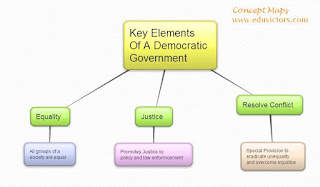Ruling The Country Side
 |
Nil Darpan - A famous Bengali play written by Dinbandhu Mitra.
The play talks about NilBidroha or The Blue Rebellion or Indigo Revolt |
NCERT Chapter Q & A
Q1: Match the following:
(a) ryot (i) village
(b) mahal (ii) peasant
(c) nij (iii) cultivation on ryot’s lands
(d) ryoti (iv) cultivation on planter’s own land
Answer:
(a) ryot - peasant
(b) mahal - village
(c) nij - cultivation on planter’s own land
(d) ryoti - cultivation on planter’s own land
Q2: Fill in the blanks:
(a) Growers of woad in Europe saw __________ as a crop which would provide competition to their earnings.
(b) The demand for indigo increased in lateeighteenth-century Britain because of __________.
(c) The international demand for indigo was affected by the discovery of __________.
(d) The Champaran movement was against __________.
Answer: (a) indigo
(b) industrialisation which expanded cotton production and created demand for cloth dyes.
(c) synthetic dyes
(d) indigo planters
Q3: Describe the main features of the Permanent Settlement.
Answer:
- Permanent Settlement was introduced by Eas India Company in 1793.
- By the terms of the settlement, the rajas and taluqdars were recognised as zamindars.
- Zamindars would collect rent from the peasants and pay revenue to the Company.
- It would ensure a regular flow of revenue into the Company’s coffers and encourage the zamindars to invest in improving the land.
- But this settlement created problems. Zamindars found revenue rates were too high and they found it difficult to pay.





